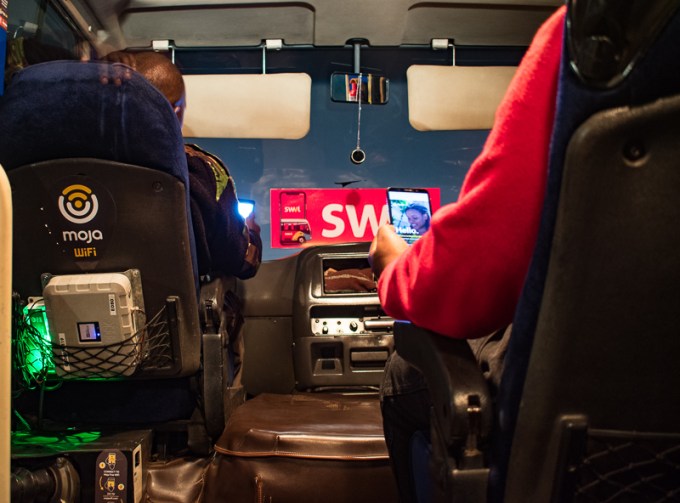Africa Roundup: Canal+ acquires ROK, Flutterwave and Alipay partner, OPay raises $50M
in July, French television company Canal+ acquired the ROK film studio from VOD company IROKOtv.
Canal+ would not disclose the acquisition price, but confirmed there was a cash component of the deal.
Founded by Jason Njoku in 2010 - and backed by $45 million in VC - IROKOtv boasts the world's largest online catalog of Nollywood: a Nigerian movie genre that has become Africa's de facto film industry and one of the largest globally (by production volume).
Based in Lagos, ROK film studios was incubated to create original content for IROKOtv, which can be accessed digitally anywhere in the world.
ROK studio founder and producer Mary Njoku will stay on as director general under the Canal+ acquisition.
With the ROK deal, Canal+ looks to bring the Nollywood production ethos to other African countries and regions. The new organization plans to send Nigerian production teams to French speaking African countries starting this year.
The ability to reach a larger advertising network of African consumers on the continent and internationally was a big acquisition play for Canal+.
Canal+ acquires Nollywood studio ROK from IROKOtv to grow African film
San Francisco and Lagos-based fintech startup Flutterwave partnered with Chinese e-commerce company Alibaba's Alipay to offer digital payments between Africa and China.
Flutterwave is a Nigerian-founded B2B payments service (primarily) for companies in Africa to pay other companies on the continent and abroad.
Alipay is Alibaba's digital wallet and payments platform. In 2013, Alipay surpassed PayPal in payments volume and currently claims a global network of more than 1 billion active users, per Alibaba's latest earnings report.
A large portion of Alipay's network is in China, which makes the Flutterwave integration significant to capturing payments activity around the estimated $200 billion in China-Africa trade.
Flutterwave will earn revenue from the partnership by charging its standard 3.8% on international transactions. The company currently has more than 60,000 merchants on its platform, according to CEO Olugbenga Agboola.
In a recent Extra Crunch feature, TechCrunch tracked Flutterwave as one of several Africa-focused fintech companies that have established headquarters in San Francisco and operations in Africa to tap the best of both worlds in VC, developers, clients and digital finance.
Flutterwave and Alipay partner on payments between Africa and China
Flutterwave's Alipay collaboration also tracks a trend of increased presence of Chinese companies in African tech. July saw Chinese owned Opera raise $50 million in venture spending to support its growing West African digital commercial network, which includes browser, payments and ride-hail services. The funds are predominately for OPay, an Opera owned, Africa-focused mobile payments startup.
Lead investors included Sequoia China, IDG Capital and Source Code Capital. Opera also joined the round in the payments venture it created.
OPay will use the capital (which wasn't given a stage designation) primarily to grow its digital finance business in Nigeria - Africa's most populous nation and largest economy.
OPay will also support Opera's growing commercial network in Nigeria, which includes motorcycle ride-hail app ORide and OFood delivery service.
Opera founded OPay in 2018 on the popularity of its internet search engine. Opera's web-browser has ranked No. 2 in usage in Africa, after Chrome, the last four years.
Opera founded startup OPay raises $50M for mobile finance in Nigeria
July also saw transit tech news in East Africa. Global ride-hail startup InDriver launched its app-based service in Kampala (Uganda), bringing its Africa operating countries to four: Kenya, Uganda, South Africa and Tanzania. InDriver's mobile app allows passengers to name their own fare for nearby drivers to accept, decline or counter.
Nairobi-based internet hardware and service startup BRCK and Egyptian ride-hail venture Swvl are partnering to bring Wi-Fi and online entertainment to on-demand bus service in Kenya.
 BRCK is installing its routers on Swvl vehicles in Kenya to run its Moja service, which offers free public Wi-Fi - internet, music and entertainment - subsidized by commercial partners.
BRCK is installing its routers on Swvl vehicles in Kenya to run its Moja service, which offers free public Wi-Fi - internet, music and entertainment - subsidized by commercial partners.
Founded in Cairo in 2017, Swvl is a mass transit service that has positioned itself as an Uber for shared buses.
The company raised a $42 million Series B round in June, with intent to expand in Africa, Swvl CEO Mostafa Kandil said in an interview.
Startups BRCK and Swvl partner on free Wi-Fi for Kenyan ride-hail buses
BRCK and Swvl wouldn't confirm plans on expanding their mobile internet partnership to additional countries outside of Kenya .
Africa's ride-hail markets are becoming a multi-wheeled and global affair making the continent home to a number of fresh mobility use cases, including the BRCK and Swvl Wi-Fi partnership.
Africa's ride-hail markets are hot spots for startups and VC
More Africa-related stories @TechCrunch
- VertoFX raises $2M for its African and EM currency trading platform
- Why this Nigerian fintech startup is volunteering audited financials
- China's Vivo is eyeing smartphone users in Africa and the Middle East
- Only 2% of genomic material available for research comes from Africa; 54gene wants to change that
African tech around the 'net
- MTN granted operating license to launch financial service in Nigeria
- Kenya's Sokowatch raises further $2.5m funding, expands to Rwanda, Uganda
- 4Di Capital launches $9.4m fund to invest in SA tech startups